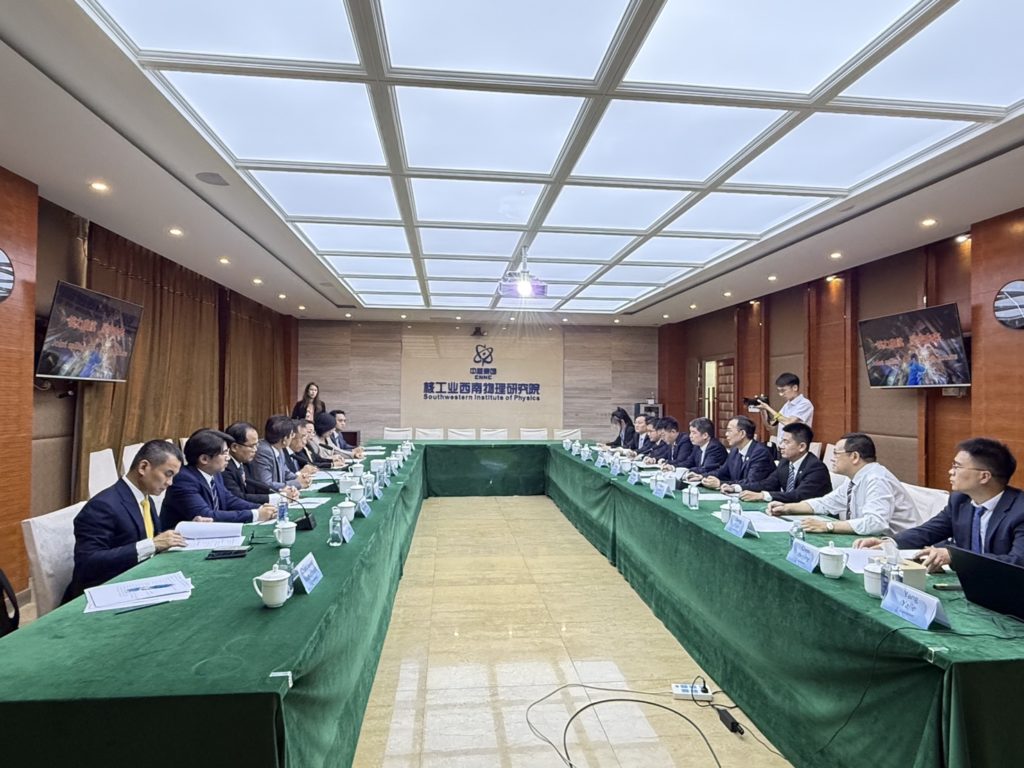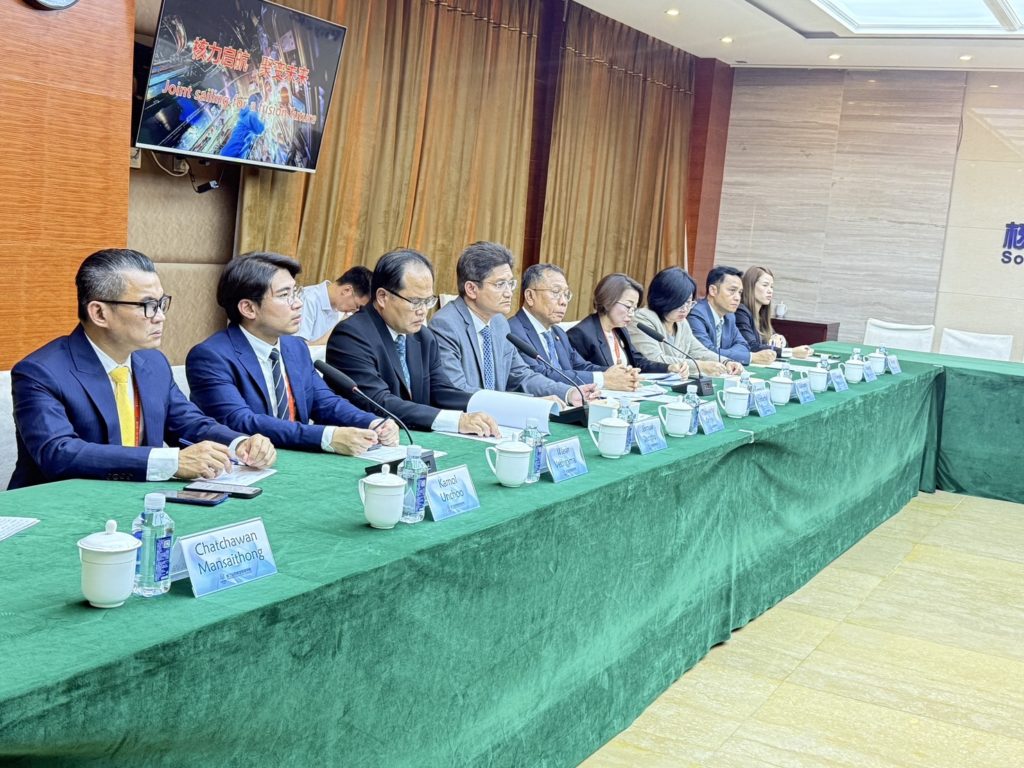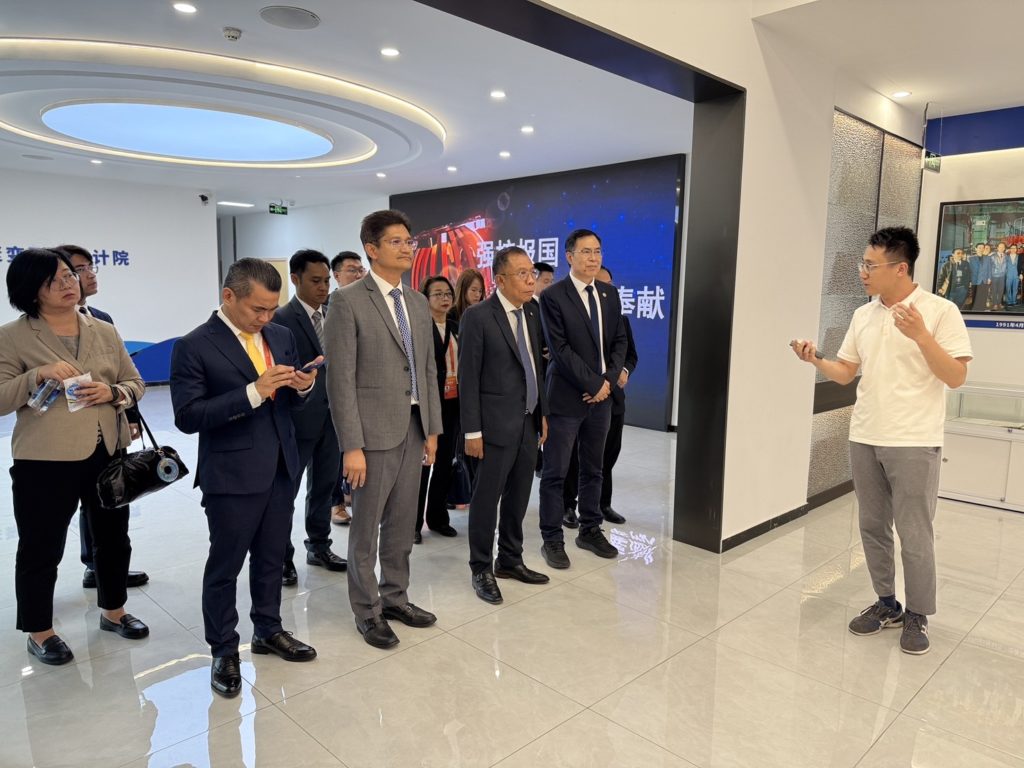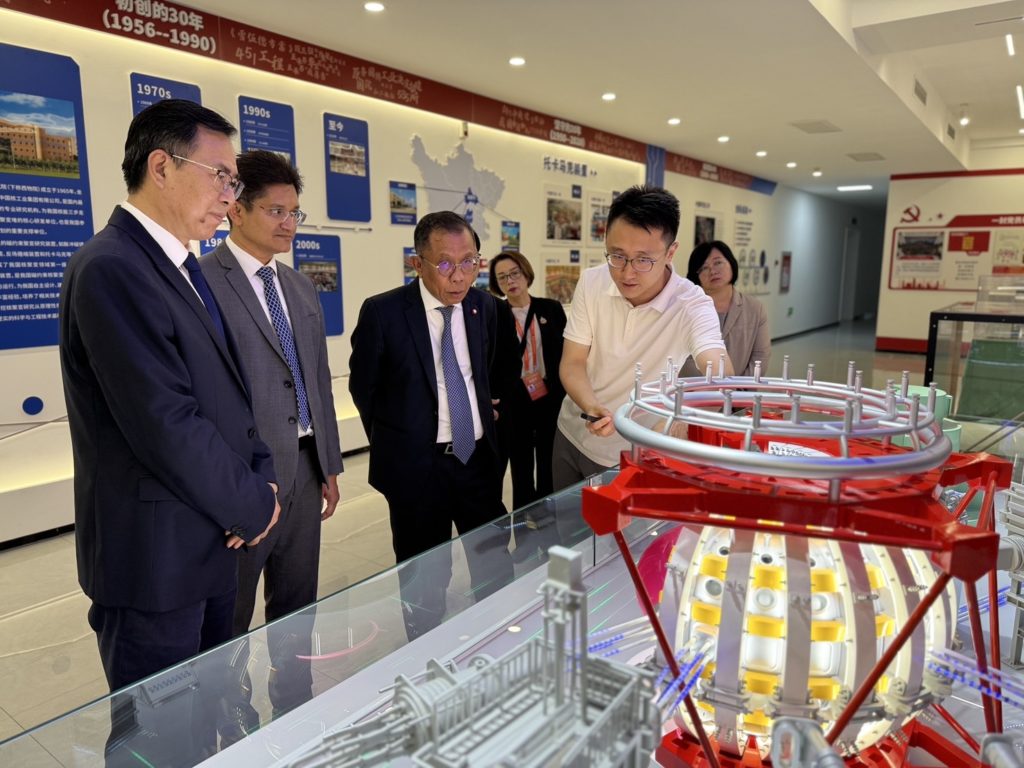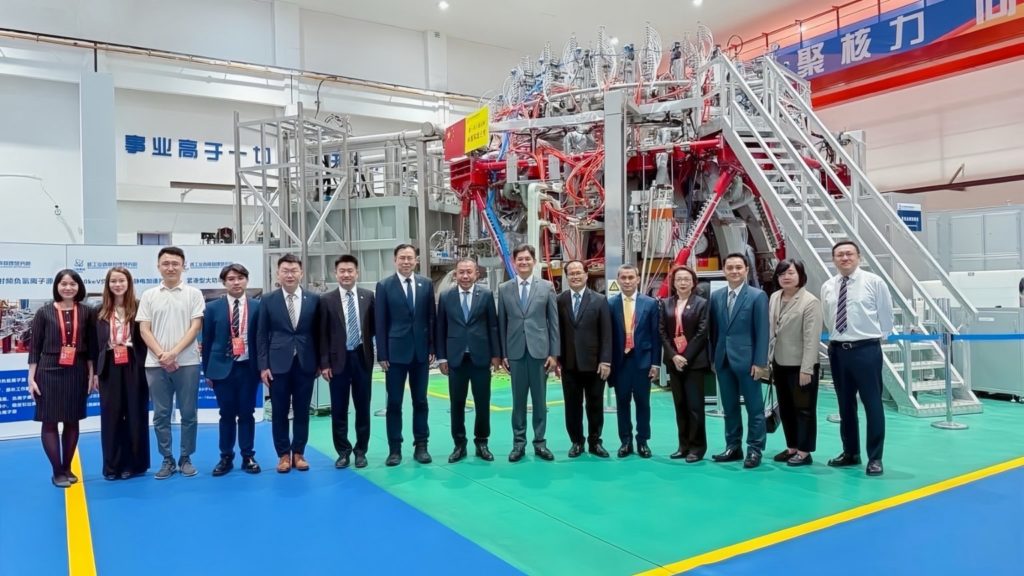On 12 June 2025, Ms. Supamas Isarabhakdi, Minister of Higher Education, Science, Research and Innovation (MHESI), together with Mr. Suphachai Jaismut, Vice Minister of MHESI, led the Thai delegation in attending the signing ceremony of a Memorandum of Understanding (MoU) between the Thailand Institute of Nuclear Technology (TINT) and the Nuclear Power Institute of China (NPIC). Joining the delegation were Dr. Surachai Sathitkunarat, President of NXPO, and Dr. Charnwit Udomsakdigool, Strategist at NXPO.
The MoU marks the establishment of a Joint Laboratory on Small Modular Reactor (SMR) Technology. On this occasion, Minister Supamas delivered remarks, expressing appreciation to the Chinese government for fostering opportunities to exchange knowledge on the peaceful use of nuclear technology. She also commended China’s advancements in this sector — particularly in SMR technology, which has garnered increasing global interest — and emphasized Thailand’s commitment to learning from China’s experience to support the country’s nuclear energy development in alignment with its sustainable development goals.

This collaboration represents a significant step in strengthening Thailand’s knowledge base, research capacity, and innovation ecosystem in nuclear energy. It also lays a solid foundation for expanding future cooperation in related fields. The partnership contributes to enhancing both nations’ energy security and reinforces their shared commitment to sustainable development under the Belt and Road Initiative (BRI).
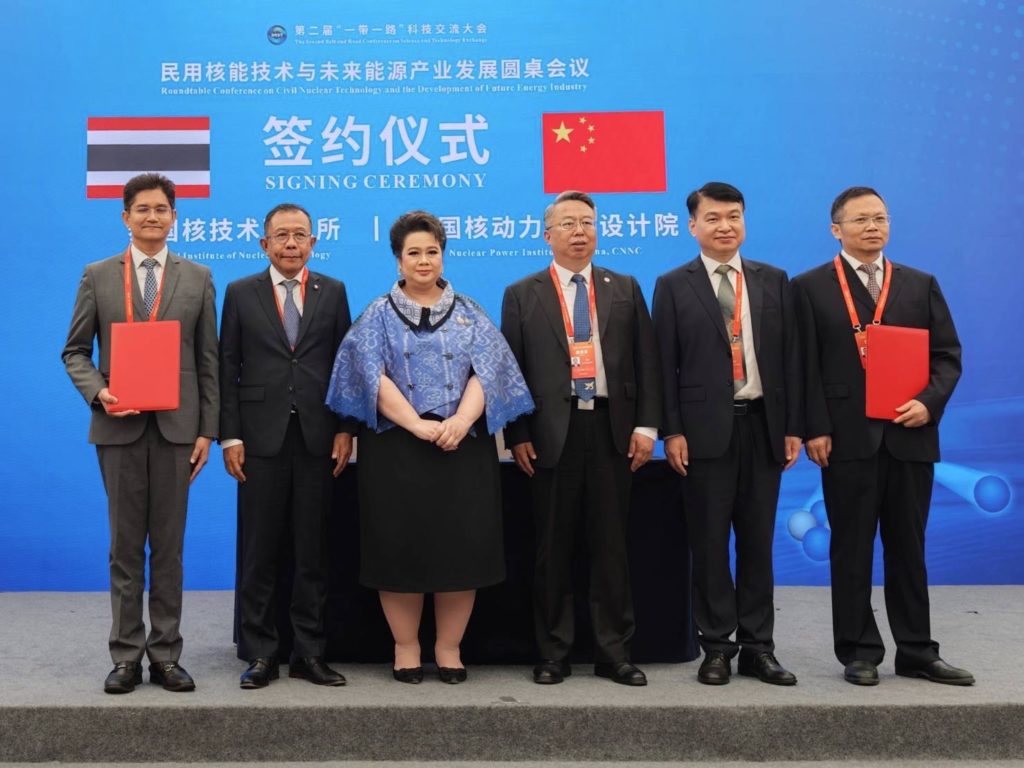
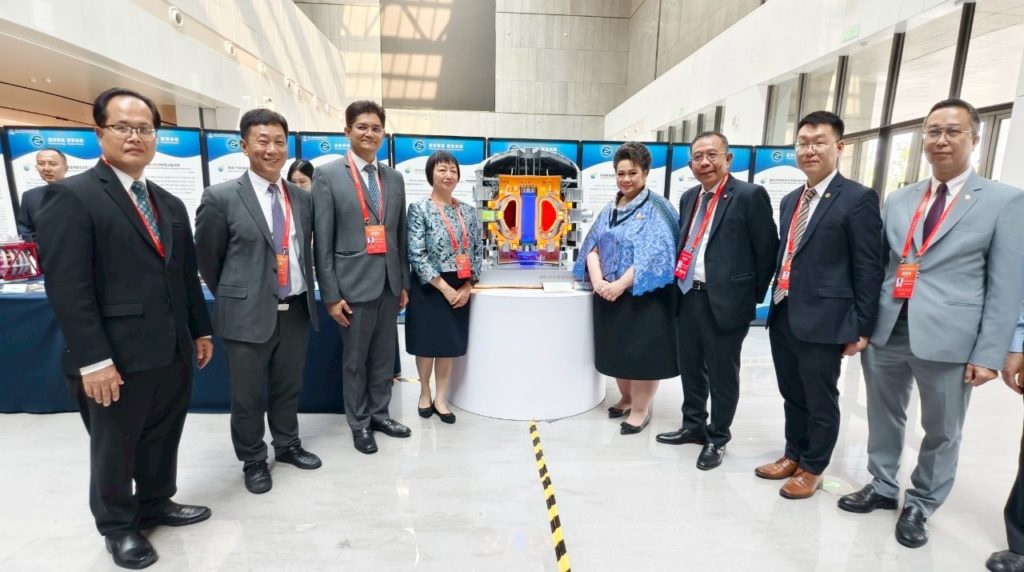
In the afternoon, Mr. Suphachai led the Thai delegation in two key bilateral meetings with Chinese counterparts:
1. Bilateral Meeting with China’s Ministry of Science and Technology (MOST)
The delegation met with Mr. Chen Jiachang, Vice Minister of MOST, at the Tianfu International Convention Center to discuss scientific and technological collaboration under the BRI framework. During the meeting, both sides signed two Letters of Intent (LOIs) to expand cooperation in traditional Chinese medicine and science and technology, with a particular focus on sustainable development, green technologies, innovation, entrepreneurship, and the application of science and technology for poverty alleviation.
Mr. Suphachai also presented MHESI’s policy priorities and proposed pathways for deepening cooperation in emerging technology areas, including artificial intelligence (AI), electric vehicles (EV), health technology, and nuclear fusion. Thailand expressed interest in learning from China’s practical experience in applying science and technology to poverty eradication and proposed potential joint initiatives, such as researcher exchanges, collaborative research projects, the establishment of joint laboratories, commercial innovation promotion, and policy dialogues on future technologies.
Both parties agreed to utilize the Joint Committee Meeting (JCM), with the upcoming meeting scheduled for September in China, as the primary platform for policy dialogue and cooperation review. This bilateral collaboration has already resulted in significant progress, especially in space technology and nuclear fusion, including China’s technical support in developing Thailand’s first Tokamak nuclear fusion reactor (Thai Tokamak 1).
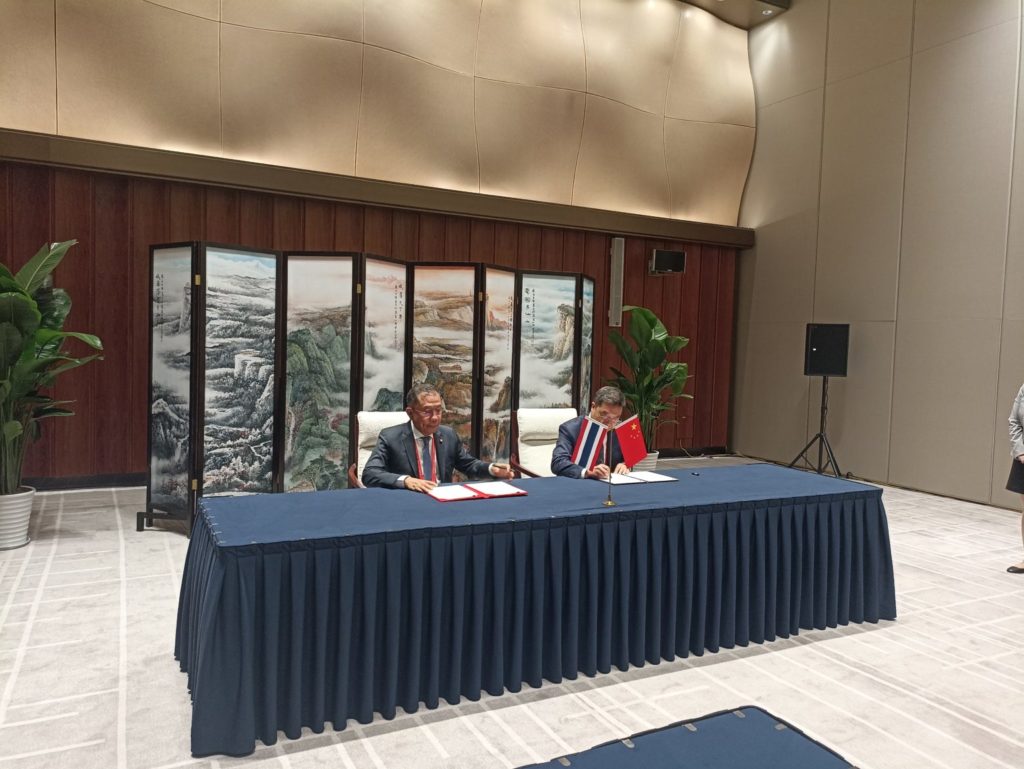
2. Bilateral Meeting with the Southwestern Institute of Physics (SWIP) and China National Nuclear Corporation (CNNC)
The delegation also visited the Southwestern Institute of Physics (SWIP) and held discussions with Mr. Zhang Kai, Vice President of SWIP, representatives from CNNC, and toured the HL-3 Tokamak Nuclear Fusion Reactor, one of China’s most advanced fusion research facilities. The meeting explored potential cooperation in fusion technology, Small Modular Reactors (SMRs), and radioactive waste management. Thailand reaffirmed its interest in learning from China’s experience to support its long-term energy strategy and sustainable technology development.
